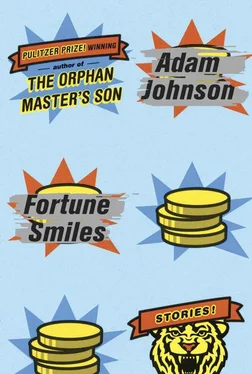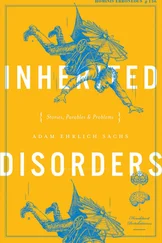When I open the door, a police officer is standing there.
“Those are some pretty serious flowers,” the cop says, nodding at the yard.
“They’re from the lady who used to live here,” I tell him.
“I’m Officer Hernandez,” he says. “Jaime Hernandez. A colleague of mine, Sergeant Rengsdorff, said I might talk with you. He said you helped crack a couple laptops a while back, that you helped with a kiddie case.”
I nod. “That’s right. Denis. How is he?”
“Sergeant Rengsdorff retired last year. I took his place on the Crimes Against Minors task force.”
His phone keeps vibrating with text messages, but he pays them no mind. I peg him as the cool cop who gives out his number to the troubled and at-risk, letting them know he’s there .
Just then Rhonza comes walking by. “You finally busting that creepshow?” she calls out. “Someone’s been peeping in the neighborhood, and I knew it was him. I could see it in his fucked-up eyes.”
The cop lifts his hand in a semi-salute that says, I heard you, ma’am; thanks for the input .
But Rhonza isn’t done. “Look at him,” she demands. “He got Rikki-Tikki-Tavi eyes.”
When she’s gone, Officer Hernandez offers a knowing smile.
“There’s one in every neighborhood,” he says, but he is now studying my eyes.
“Please,” I say. “Come in.”
He steps inside. “You just move in?” he asks, and I almost tell him I’ve been living here for seven years. Instead, I shut my mouth and watch him sweep his eyes along the empty white walls and blank refrigerator and neatly made foldout bed.
“You never really get settled,” I tell him.
“When you do, it’s time to move again,” he says, staring at the bookcase that houses my National Geographic magazines, the rows and rows of yellow spines.
We stand at the kitchen counter. “Glass of water?” I ask. “Half-pint of milk?”
“That’s a lot of magazines,” he says. “I didn’t know they still published that one.”
“I have a lifetime subscription.”
“What’d that set you back?” he asks hollowly, for he is really scrutinizing the contents of my fridge when I open it.
“I received it as a prize when I was a boy in the Sea Scouts. I was our troop’s scout of the year, though I didn’t do anything special to earn it. It was more of a consolation prize, really.”
The cop returns his gaze to me. “Sea Scouts?”
“It’s just like the Boy Scouts, but on water. You learn navigation and maritime skills. The troop I was in doesn’t exist anymore. It disbanded after our troop leader took his life. He hiked up Topanga Canyon and hanged himself.”
He watches me unfold the carton’s spout.
“Sorry to hear that,” he says. “I’m sure his legacy lives on.”
I take a swig of milk. “Well, the magazines keep coming.”
“Right,” Officer Hernandez says. “I’m here because of an article on the Web. It basically says that a code can be placed in explicit imagery, that it can be tracked somehow. I can’t claim to understand it. Denis, Sergeant Rengsdorff, he said you were the guy to talk to.”
“I know the article,” I tell him, and I explain the whole thing, about the signals and beacons, how the child pornographers seem to have no idea their files have been modified, which suggests that some agency, probably federal, has swapped the pornographers’ source files for doctored ones. Rather than shutting them down, the feds are using them to build a database of viewers.
After I pour this information out, Hernandez stares at me a moment. Then he begins asking questions, all the right ones, about detection, distribution, how come I know so much. Then he asks me, “The guy who wrote this article, he signed his name ‘Dark Meadow.’ Does that mean something in computer talk?”
“Not that I know of.”
“Here’s what I don’t understand,” Officer Hernandez says. “If this signal, if this two-hundred-and-fifty-six-digit code is the key, how come this Dark Meadow guy didn’t publish it with the article?”
“I don’t know,” I say. “Maybe revealing that would jeopardize a major federal investigation.”
“But didn’t writing the article do that?” he asks. “I mean, are we dealing with one of the good guys or one of the bad?”
“I don’t understand the question.”
“The question is simple. Is this guy trying to protect kids by alerting the authorities of a way to catch predators? Or is he trying to help pedophiles by warning them of a vulnerability?”
I still don’t quite follow. “Information is information,” I tell him.
Hernandez asks, “Do you know this Dark Meadow?”
I don’t say anything.
“Maybe I will take that milk,” he says.
When I open the fridge, he again peers inside. There’s nothing of interest to see, just a few shelves stacked with neat rows of milk cartons.
“If I understand you right,” he asks, “a person with this code could find all the child porn viewers in L.A.”
“If you had the code,” I say, “you could make a real-time Google map of them.”
I hand him a carton. He shakes it to froth the milk inside.
“But who would you catch?” I ask. “I dig in to a half-dozen computers a day, and any number of them are loaded with porn. It comes in all varieties. So I run across this kind of stuff. And you must believe me — there is no pleasure in seeing it. In fact, it is quite painful to me. But you got to understand that most of these pictures are from ten, twenty years ago. The victims are grown, the offenders are old, probably sucking on oxygen bottles somewhere.”
“Yeah?”
“You can’t go back in time,” I say. “You can’t stop what’s already happened. It can only be dealt with.”
Hernandez takes a drink from his tiny carton. “You know they sell this stuff by the gallon.”
“I like to take things in increments,” I tell him.
“I got kids,” he says. “So I’m on this task force for personal reasons. And I’m going to share my belief that there’s no difference between the guy who rapes children and the guy who looks at pictures of children being raped. Most officers on the force think these guys should be hunted down and shot like dogs in the street. I haven’t dwelled too much on that end of it. For me, it’s the children, they’re the ones I’m concerned about. And how long ago it was that they got hurt, that doesn’t matter to me at all.”
He regards me a moment, almost sadly.
“Personally, I don’t think you’re one of the bad guys,” he says. “But you, whether you think you’re a good guy or a bad guy — that’s something you should be very concerned with. There’s a way you can prove to yourself that you’re not a bad guy. You can save us a lot of trouble and pass along that code.”
He leaves his card.
—
I follow the cop outside and watch him drive away. From the porch, I can see the Tiger and the Cub have opened a lemonade stand. They’ve taken a table and two folding chairs into the parking lot and are sitting, waiting. They have some lemons, a sugar jar and a pitcher of ice water. The Cub’s legs swing back and forth below the vinyl tablecloth. Nobody visits their lemonade stand, including me.
—
Come dark, I initialize my computer and crop images for a while. This is controlled, orderly work, and it soothes me. I take the images I’ve copied from people’s hard drives, and then I crop out the erections and penetrations and grimaces. I don’t need to tell you that I hate videos. You can’t crop a video. And once it’s in motion, it’s impossible to control.
I call up the picture of the girl in the kitchen. First I crop her photo down to an image that shows only her eyes. Save. Then I frame the pattern of light that falls across her skin. Save. I crop an image that is simply yellow — a square of her yellow shirt, nothing else. Save. And then the hand. I trim and trim, narrowing in until there is only blur. You wouldn’t even know it was a hand. Then I destroy the original. In this way, I cripple the picture’s power to hurt — it’s not child pornography, it’s not pornography, it’s not even a child. I remove what racks you, what leaves you unable to raise yourself from the bottom of the boat.
Читать дальше












